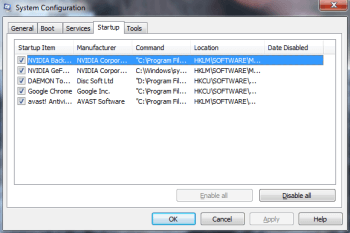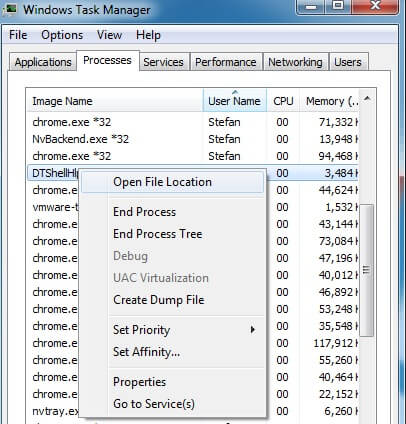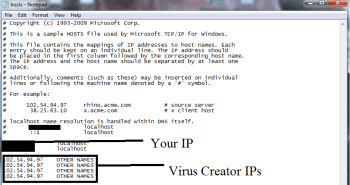
*Pouu is a variant of Stop/DJVU. Source of claim SH can remove it.
Pouu
Pouu is a ransomware cryptovirus designed to apply encryption to user files and to demand a ransom payment in order to decrypt them. Pouu typically encrypts documents, audio and video files, databases, and images and holds them hostage until the victim transfers the required money.

Pouu is undoubtedly one of the most malicious variants of ransomware that could be encountered online. This malware is programmed to secretly encrypt your data and then display a ransom note on your screen asking for a certain amount of money. You can find more information about this awful program in the paragraphs that you are about to read but what you are probably most interested in is how to remove it and how to recover your encrypted files. That’s why, at the end of this article, we have published a free removal guide with ransomware-removal and file-recovery instructions that may possibly help you deal with Pouu.
The Pouu virus
The Pouu virus is malicious software created for blackmail purposes. The Pouu virus uses file encryption to restrict access to valuable user files and then demands a ransom payment from its victims in order to restore access to the encrypted files.
Pouu Ransomware is a really dangerous infection that can pose a challenge even for professionals in the field of cyber security. This being said, there is no guarantee that the encrypted data can be recovered unless the victims possess a full data backup copy.
This is how a standard Ransomware-based virus usually operates:
- The first step is to infect the device. This can happen in many ways but most commonly when users interact with a piece of web content that contains the ransomware infection. There may be many potential carriers of such malware that web users can come across: from program bundles and infected websites, fake ads, torrents, or spam email messages to shareware and malicious links. That’s why it really matters that you are careful when you browse the web and click only on reliable materials.
- After the ransomware enters your system, it will attempt to identify which files are most valuable to you and will encrypt them all with complex code.
- At the end of the attack, a ransom notification will be displayed on your screen. This notification will require a money transfer to a given cryptowallet in case that you want to regain access to the encrypted files.
The Pouu file encryption
The Pouu file encryption is a malicious process that the cyber criminals behind the Pouu ransomware use to prevent users from opening and using their information. The Pouu file encryption process runs in the background of the system and is typically not detected by most security programs.

The Ransomware-based Program’s (Zoqw, Poqw) intentions are clear – money extortion. However, you can never be sure about the intentions of the hackers who control it. Therefore, what we always suggest is that you take the initiative in your hands and do whatever it takes to remove the ransomware virus and recover your files by alternative means. Don’t waste your money to sponsor criminals who target naive people. In case you don’t know where to start, our Removal Guide here can prove to be quite useful.
SUMMARY:
*Pouu is a variant of Stop/DJVU. Source of claim SH can remove it.
Remove Pouu Ransomware

First, save this page in your browser’s bookmarks bar, so you can quickly return to the removal instructions when necessary.
After that, you’ll need to restart your computer in Safe Mode once you’ve saved the Pouu removal guide to your bookmarks. To prevent any confusion, please go to the URL provided here and follow the instructions on how to reboot your PC in Safe Mode.
Once the computer reboots, enter msconfig in the Windows search bar at the bottom of the Start menu and press the Enter key on your keyboard.
You will see the System Configuration window shown below. Select the Startup tab and look at the items in the Startup section. Remove any items from the list that Pouu may have added. When you’re done, click OK to apply your changes.


WARNING! READ CAREFULLY BEFORE PROCEEDING!
*Pouu is a variant of Stop/DJVU. Source of claim SH can remove it.
Many harmful processes begin running in the background as soon as ransomware infection occurs. Because of this, the next step is to open the Processes Tab in Task Manager and stop any processes you feel are linked to the activity of Pouu. in Task Manager and stop any processes you feel are linked to the activity of Pouu.Task Manager and stop any processes you feel are linked to the activity of Pouu.
Pressing CTRL, SHIFT, and ESC simultaneously launches the Task Manager. If you think that a specific process is dangerous or connected to the ransomware, all you have to do is right-click on it in the Processes tab and select Open File Location.

Then use the free virus scanner listed below to check the files related to that process for malicious code:

Any files found to be dangerous should be removed immediately from the system, but before that you first need to end the running process from the Task Manager.
You can end a process by right-clicking on it In the Processes tab, and choosing the option “End Process“.
![]()
The Hosts file may suffer unauthorized alternations if your machine has been infected by Pouu. Therefore, we recommend that you open it and look for changes under Localhost in the text to make sure everything is okay.
For this, you’ll need to press the Windows Key and R, and type the following command into the Run box that will appear on the screen:
notepad %windir%/system32/Drivers/etc/hosts
When you click OK in the Run window, you should see a file that looks like this:

As seen in the example screenshot above, if you identify any IP addresses associated with virus creators, please notify us by leaving a comment below this post, so that we can have a look and give you advice on what to do.
![]()
*Pouu is a variant of Stop/DJVU. Source of claim SH can remove it.
In many ransomware attacks, dangerous files are added to your computer’s Registry in order to modify your system. No matter whether you’ve been infected with Pouu or any other virus, you should search the Registry for malicious entries and remove everything you think is linked to the infection.
To do that, simply type Regedit into the Windows search bar and press Enter to open the Registry Editor. Then, press CTRL and F together and type the ransomware’s name into the Editor’s Find dialog box. After that, click on the Find Next button in order to figure out whether there are any entries with that name and start a search. Anything that is found in the search results most likely should be deleted as it might be linked to the infection.
Attention! An inexperienced user who doesn’t know which files are dangerous and need to be removed may do significant damage to the system if they make registry changes. Therefore, a professional removal program should be used to remove any dangers and malicious files from the system and the registry.
The Registry may be closed after you are certain that it is clean.
Next, using the Windows Search Field, type each of the following locations (including the percent symbol) and open them to see if any new items have been added to them:
- %AppData%
- %LocalAppData%
- %ProgramData%
- %WinDir%
- %Temp%
Just keep an eye out for any new files in the four locations listed above. No: 5 is the Temp folder. Once you open it, select and remove everything, including the temporary files that the ransomware may have created.
![]()
How to Decrypt Pouu files
Victims of different Ransomware variants may need the use of different set of tools and methods to decode encrypted data. Therefore, before you dig into the instructions below, make sure that you know the exact variant of ransomware that has encrypted your files. To figure this out, look at the file extensions that have been added to the encrypted files.
New Djvu Ransomware
Users are now being actively targeted by the latest Djvu ransomware variant, which is known as STOP Djvu. This variant adds the suffix .Pouu at the end of every file that it encodes. Currently, STOP Djvu encoded files can only be decrypted if they were encrypted with an offline key. If you need assistance decrypting your data, we recommend you try the decyptor tool available on this link:
https://www.emsisoft.com/ransomware-decryption-tools/stop-djvu
To download the STOPDjvu.exe file on your computer, open the link and click the Download button in the upper right-hand corner of the window.
Decryption can only begin if you run the file as an administrator and then press the Yes button. You may begin the decryption process by clicking the Decrypt button once you’ve read the license agreement and the short instructions for usage. Please be aware that this decryptor cannot decrypt files encoded using unknown offline keys or online encryption.
A professional anti-virus program, such as the one featured on this page, or a free online virus scanner, may be used to remove Pouu and other malware from your computer. Please let us know if you run into any issues or questions along the road, and we’ll do all we can to assist you.

Leave a Reply